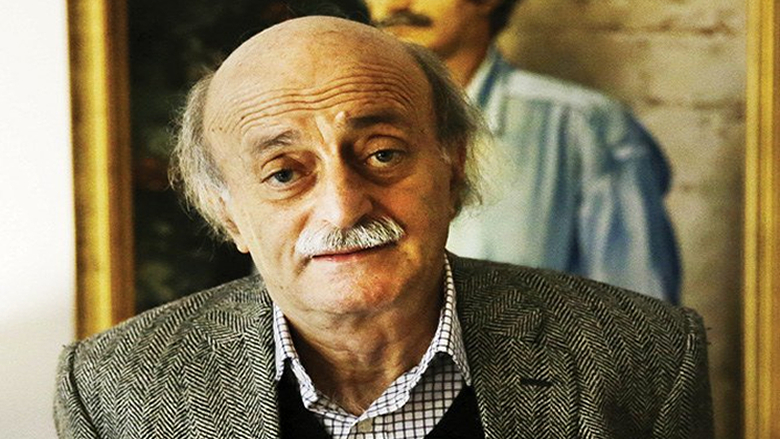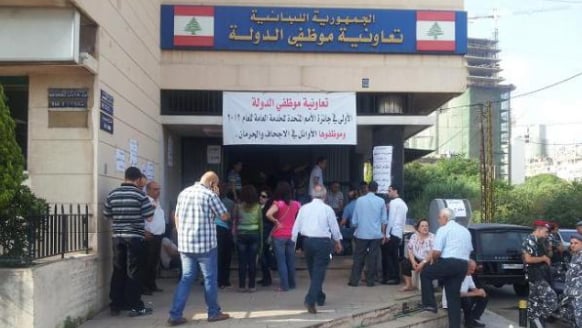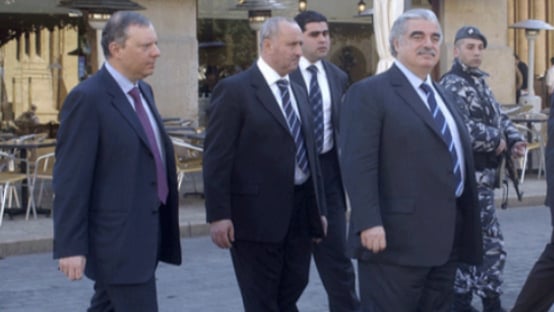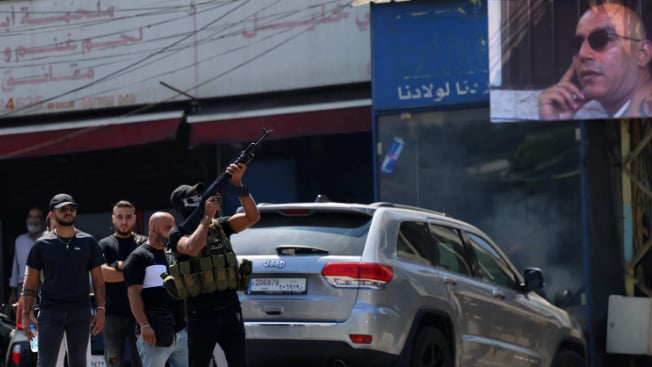Druze leader Walid Jumblatt has told Arab News that if Lebanon wants to deal with Hezbollah’s weapons issue, the Iran-backed political party cum Shiite militia will try to change the Taif Agreement and write a new constitution that works in its favor.
In an exclusive interview, the veteran politician added that it was necessary for Lebanon to work on a program with the International Monetary Fund (IMF) on acceptable conditions.
He denied that the new Lebanese government was a Hezbollah-sponsored one, and said he believed that a government in place was better than a political vacuum.
During a brief visit to Paris, Jumblatt, who is president of the Progressive Socialist Party (PSP), expressed fears about a US-Iran rift over Lebanon.
He said he would still call for dialogue with the Free Patriotic Movement party — led by President Michel Aoun’s son-in-law Gebran Bassil — for the sake of Christian-Druze coexistence.
According to Jumblatt, Lebanon’s political governing system as envisaged in the 1989 Taif agreement — which ended the 1975-1990 Lebanese civil war — can only be changed by a new electoral law.
French radio reports of the current situation in Lebanon suggest that 800 Lebanese businesses, such as hotels, bars and restaurants, have closed, and that 100,000 employees have been laid off during the political crisis, with people unable to withdraw money from banks.
Jumblatt spoke about the circumstances that had brought about the crisis, and who, in his view, was responsible for it.
“It is partly the responsibility of the political class and partly the mismanagement of public affairs in Lebanon,” he said.
“We were living in a dream when each time we had a crisis, there was an appeal to the international community and millions of dollars poured in.
“We have passed through many international aid conferences — Paris 1, Paris 2, Paris 3, and also Arab assistance. This is no longer working. We have to reschedule the Lebanese debt and work with an IMF program on acceptable conditions.
“Maybe we have to ask the IMF to manage our affairs, such as electricity and other public utilities, because it seems that the political class and the actual administration are unable to do what is needed.”
Jumblatt was asked about the Lebanese popular uprising, its rejection of the political class and whether he felt he was part of it, and responsible for the long-running problems.
“I was part of it, but the people are blaming everybody, even though they cannot accuse everybody. I am a minority because of our system. There is also the fact that Lebanon is in a unique position: We have a Lebanese state and another parallel entity which is Hezbollah.”
Jumblatt added: “We have to reach an understanding with Hezbollah on a minimum (number) of issues.
“That means controlling the borders, fighting corruption together and, for the time being, leaving aside the issue of Hezbollah’s weapons — because we cannot discuss this question now and see the future of Lebanon.”
Jumblatt said it was clear that there were “conflicting views” between Hezbollah and the PSP.
“The main issue has been weapons but nobody nowadays — neither us nor the revolutionaries — is bringing up the subject of Hezbollah’s weapons,” he said.
“The main conflict of views is over the control of our borders, both the official and non-official ones. Hezbollah has financial autonomy but most Lebanese citizens lack this autonomy.”
Given the likelihood of Hezbollah rejecting the planned IMF program, Jumblatt said: “Most Lebanese rely on the banking system and we have to find a solution, a compromise. The IMF is not a danger to Hezbollah.
Jumblatt added: “Unless Hezbollah have another solution, can they afford to sustain the whole Lebanese people and provide them with welfare and medical care?”
On the anti-corruption and anti-nepotism demonstrations in the streets of Lebanon, Jumblatt said: “We want a new political class, but that will not happen except through elections.
“I have failed because we have been in a war for decades. Now it is up to them. This confessional system is very strong (but) it has to be changed.”
But can the existing political system really be changed? “I don’t know; it is up to the people,” Jumblatt said.
“Changing the system cannot come except through a new electoral law, but up to now, the revolution has not formulated what it wants. It wants the downfall of the political class but no means of achieving that has materialized.”
Asked if he fears for the safety of Lebanon’s Druze due to his complicated relationship with two powerful Iran-backed entities, the Syrian regime and Hezbollah, Jumblatt replied: “I fear for the whole country and not only for the Druze. Of course, I have opponents backed by the Syrians and the Iranians but that is a minor problem.
“I fear for the whole country when its elite go to foreign embassies to flee from Lebanon because they have no future in their own country.
“I fear a conflict between the US and Iran on Lebanese soil. The whole country is on the verge of total collapse.”
Against this backdrop, Jumblatt is worried that the victory of hardliners in Iran’s recent elections will result in a tightening of Tehran’s grip on Beirut.
Lebanon’s new government is described by its opponents as “one color” because it is backed by President Michel Aoun and his allies — including Hezbollah — and does not include Western-supported parties.
Jumblatt rejects this characterization. “I don’t share the point of view that it is a government sponsored by Hezbollah,” he said.
“We have excellent ministers. I was supporting the government indirectly because I was against having a void. From the start of the revolution on Oct. 17 until Saad Hariri’s resignation, we had a total void. A government is better than a void.
“Also, the people in the government are doing their best in this terribly difficult situation.”
In his opinion, “somebody has to take us out of this economic mess and find a formula for formally dealing with the IMF on acceptable conditions. In addition, we have to pay part of the due eurobonds or reschedule them.”
Quizzed about Lebanon’s government failure to condemn the suspected Iranian attacks on Saudi Arabia’s Aramco oil facilities in September, Jumblatt replied: “I condemned it. I was not foreign minister. Lebanon is unfortunately divided.”
Asked whether he had plans to visit GCC countries, Jumblatt said: “I have received no invitation. I have good relations with both the Saudis and Kuwaitis.”
As for his forthcoming visit to Russia, he has no doubt about its timeliness. “I have always had good relations with the Russians. Relations were excellent when they were the Soviet Union,” he said.
“It is absolutely necessary to go there now because the Russians are a very important power in the Middle East.”
Jumblatt ended the interview on a wistful note, saying: “On Sept. 20 this year, the Lebanese will celebrate the hundredth anniversary of ‘Greater Lebanon.’
“I wonder what it means to celebrate that when Lebanon is totally isolated, is no longer protected by a compromise involving the West, the East and the Arab world, and a so-called economic miracle has totally collapsed.
“It is time for change.”





